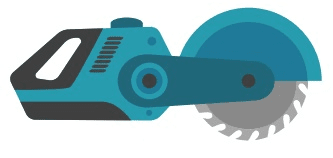Many Of The Most Exciting Things Happening With Power Miter Saw
The Ultimate Guide to Power Miter Saws: Understanding Benefits, Features, and Usage
Power miter saws are invaluable tools in both professional and DIY woodworking circumstances. Whether you're constructing cabinets, framing houses, or participating in more elaborate projects, a reputable miter saw can change your workflow, boost precision, and save time. This guide explores the details surrounding power miter saws, from their components and types to their applications and upkeep.
What is a Power Miter Saw?
A power miter saw is a flexible cutting tool that permits users to make precise crosscuts and miter cuts in wood, plastic, and other products. It includes a circular blade mounted on a swing arm that rotates at an angle, offering the capability to cut products at various angles, making it ideal for producing joint fits and moldings.
Secret Components of a Power Miter Saw
Element
Description
Blade
The circular cutting tool that slices through products. Common sizes vary from 8” to 12”.
Base Plate
The flat part of the saw that supports the material being cut.
Fence
A guide that helps to stabilize the workpiece and make sure precision throughout cuts.
Pivot Arm
The movable arm that enables the user to angle the blade for bevel and miter cuts.
Trigger
The switch that powers the blade.
Security Features
Include blade guards, safety switches, and other systems created to prevent mishaps.
Types of Power Miter Saws
Standard Miter Saw
- Standard model for simple crosscuts.
- Limited to making only miter cuts and crosscuts without bevel abilities.
Compound Miter Saw
- Consists of the capability to tilt the blade to make bevel cuts.
- Suitable for jobs that need both miter and bevel cuts, such as crown molding.
Double Compound Miter Saw
- Can tilt in both instructions, using extra flexibility.
- Perfect for more substantial projects that need intricate angles.
Sliding Miter Saw
- Features a sliding mechanism that allows the blade to move back and forth.
- Enables cutting broader products while keeping precision.
Benefits of Using a Power Miter Saw
- Precision: Offers precise cuts with minimal effort, especially useful for elaborate joints.
- Versatility: Capable of altering cuts— crosscuts, bevels, and compound cuts.
- Speed: Cuts substantially reduce job time compared to manual tools.
- Relieve of Use: Designed for ease of operation, suitable for both beginners and experts.
- Security Features: Equipped with guards and switches that enhance user security.
How to Use a Power Miter Saw Effectively
Preparation
- Check out the Manual: Familiarize yourself with the specific saw model.
- Set Up Your Workspace: Ensure a clean, well-lit environment with ample area.
- Select the Right Blade: Choose a blade proper for the product being cut.
Steps for Cutting
- Adjust the Miter Angle: Set your preferred angle on the miter scale.
- Align the Material: Position the workpiece against the fence and protect it in location if necessary.
- Examine the Blade: Ensure the blade is sharp and properly installed.
- Use Safety Gear: Use eye defense and hearing protection if essential.
- Power On: Activate the saw and enable the blade to reach complete speed.
- Cut Slowly and Steadily: Press down gently but firmly on the blade while maintaining control.
Maintenance Tips
- Frequently clean the blade to avoid resin accumulation.
- Inspect the positioning of the saw often.
- Oil moving parts frequently for ideal efficiency.
- Inspect security features to guarantee they operate efficiently.
Common Applications for Power Miter Saws
- Framing & & Trim Work: Ideal for making exact cuts in framing products and trim.
- Furniture Making: Perfect for lowering elements for kitchen cabinetry and furniture.
- Crown Molding: A must-have tool for accurately cutting crown molding pieces.
- Deck Building: Used for cutting boards at various angles for deck building.
Power Miter Saw Maintenance: An Overview
Upkeep Task
Frequency
Tips
Blade Replacement
As required
Look for dullness or damage.
Cleaning up
Month-to-month
Clean down saw and remove particles.
Lubrication
Yearly
Apply oil to moving parts to keep them practical.
Safety Check
Regular monthly
Test safety features and change as essential.
Regularly Asked Questions (FAQ)
1. What size miter saw should I buy?
The saw size depends upon your jobs. An 8” model is excellent for smaller DIY tasks, while a 12” is better for bigger and more frequent commercial work.
2. Can I use a miter saw for cutting metal?
Requirement blades are not suitable for metal. Nevertheless, with Power Tools Online designed for metal cutting, a miter saw can effectively cut through thin metal materials.
3. How do I keep the precision of my miter saw?
Frequently check the positioning of the blade with the miter slot and fence. Adjust and recalibrate as required.
4. What is the difference in between a compound miter saw and a sliding miter saw?
A compound miter saw can only make angled cuts by tilting the blade one way, while a sliding miter saw allows for wider cuts by making it possible for the blade to slide back and forth.
5. Is it safe to utilize a power miter saw inside?
While more secure than some power tools, constantly ensure great ventilation and take essential security precautions, such as using a vacuum system to manage dust.
A power miter saw is a necessary tool for anybody involved in woodworking, from novices to experts. With the information offered in this guide, users can better comprehend the features, types, and correct use and upkeep methods of a power miter saw. Whether starting residential jobs or dealing with commercial tasks, investing time in learning about these fantastic tools can considerably improve your craft and performance in woodworking tasks.
